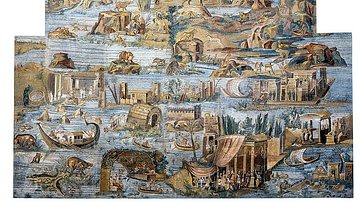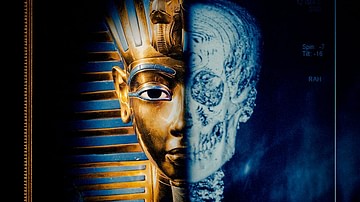Review

| Rating: | |
|---|---|
| Title: | Alexandria: The City that Changed the World |
| Author: | Islam Issa |
| Audience: | General Public |
| Difficulty: | Easy |
| Publisher: | Pegasus Books |
| Published: | 2024 |
| Pages: | 496 |
"Alexandria: The City That Changed the World" by Islam Issa is a biography of a city. It explores the history of Alexandria, Egypt, and its place in our collective memory. It is in part history book, essay, and travel guide, suitable for casual readers. Issa covers up to the 1952 Egyptian Revolution through the lens of his family history. Along the way, he describes the physical city, from the waterfront Qaitbay Citadel where the Lighthouse of Alexandria once stood to the congested downtown.
The book begins with Alexandria's founding by Alexander the Great after he conquered the Persian Empire. Like its legendary namesake, the city was destined for fame. Its strategic and symbolic value made it a coveted prize of world conquerors like Augustus, Napoleon Bonaparte, and Admiral Nelson. The city witnessed the death of Cleopatra, Christianity's triumph over paganism, the rise of the Islamic Caliphates, and the Industrial Age. Even today, Alexandria is an important center of trade, culture, and industry.
The Ptolemaic dynasty, who ruled Egypt in the interim between Alexander and the Roman Empire, transformed it into their crown jewel. Through institutions like the Library of Alexandria, the city became a capital of knowledge and scholarly collaboration. The combined civilizational heritage of East and West birthed a unique urban culture and architectural marvels. This wealth and cosmopolitanism attracted the artistic and scholarly communities that shaped the city's image.
Issa is a professor of literature and history at Birmingham City University, and his family lived in Alexandria for generations. The result of his experience is a powerful monograph on the city’s cultural significance. It is firmly rooted in historical fact, and it is easy to pick up on Alexandria's personal importance to the author. In the prologue, he recalls his father's old stories about Alexandria's former glory, and how they took on new significance for him as he confronted the legacy of Alexandria as an adult. The memory of the ancient city lives on as part of Egypt’s national mythology, inspiring modern-day monuments and legends.
Rather than repeating myths, Issa seeks to critically examine them in light of factual evidence, allowing both the real and imaginary Alexandria to exist side-by-side. At the beginning of the book, there is a series of maps depicting the city at different points in time, from its foundation to the 21st century. It also contains a collection of photographs, some capturing the city today and others portraying its historical sites and artifacts. While intended for casual readers, the book has endnotes and a bibliography to point readers in the direction of further study.
The author concludes the book with an examination of Alexandria's identity and Egyptian national identity in the present day. In contemporary Egypt, there is broad support for historical preservation, but politics determine which histories are deemed worthy of preservation and which are censored. Environmental changes and the rapid construction of an ever-growing modern metropolis on top of the ancient city threaten archaeological efforts. As has been true since the city’s foundation, what is believed about Alexandria’s past – and what it means to be Alexandrian – is constantly changing.
About the Reviewer
Cite This Work
APA Style
King, A. (2024, July 02). Alexandria: The City that Changed the World. World History Encyclopedia. Retrieved from https://www.worldhistory.org/review/458/alexandria-the-city-that-changed-the-world/
Chicago Style
King, Arienne. "Alexandria: The City that Changed the World." World History Encyclopedia. Last modified July 02, 2024. https://www.worldhistory.org/review/458/alexandria-the-city-that-changed-the-world/.
MLA Style
King, Arienne. "Alexandria: The City that Changed the World." World History Encyclopedia. World History Encyclopedia, 02 Jul 2024, https://www.worldhistory.org/review/458/alexandria-the-city-that-changed-the-world/. Web. 27 Apr 2025.




